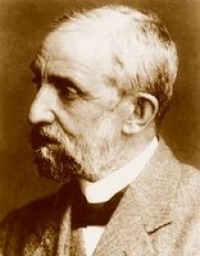Lenard, Phillip (Physics & Chemistry)
Lenard, Phillip
Phillip Lenard (1862-1947), a Hungarian-German physicist who won the Nobel Prize for Physics in 1905 for his research on cathode rays and the discovery of many of their properties. Subsequent research showed that cathode rays are the carriers of electricity, and are now known as electrons. The fact that the cathode, i.e., the negative electrode, emits the rays showed that electrons carry a negative charge. Lenard’s work formed the basis for Karl Braun’s discovery of the cathode ray tube, key to the operation of television sets, oscilloscopes, and vidicon television cameras. Lenard was an extreme nationalist who despised English physics, a community which he considered to have stolen its ideas from Germany. During the Nazi reign, Lenard fiercely advocated that Germany rely on "Deutsche Physik" (literally "German physics", but best translated as "Aryan physics" in this case), and ignore what he viewed as the fallacious and even deliberately misleading ideas of "Jewish physics", chiefly the theories of Albert Einstein.
Further Reading
Phillip Lenard - Biography (Nobel Foundation)
Phillip Lenard - Nobel Lecture (Nobel Foundation)
